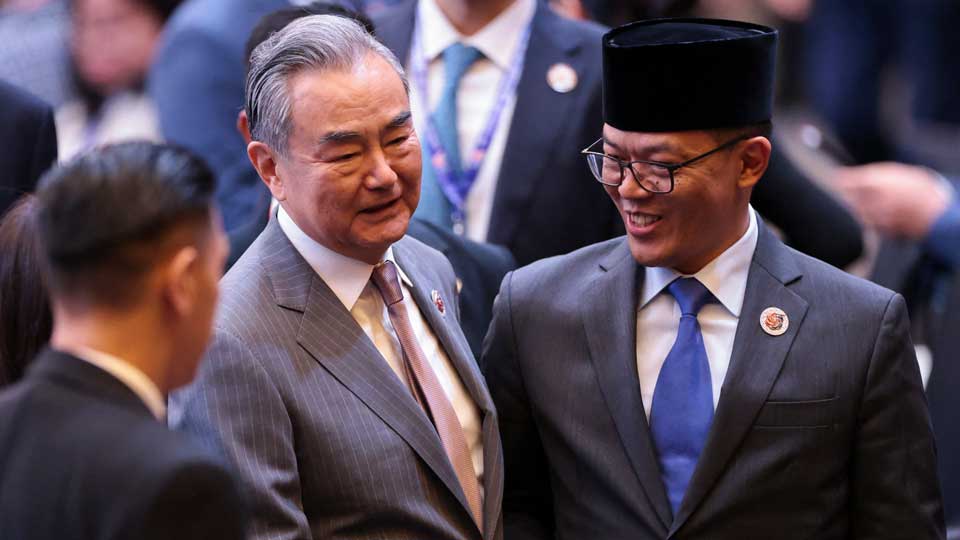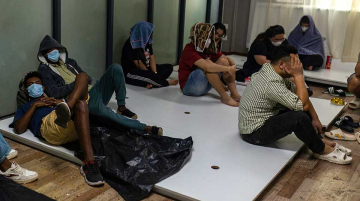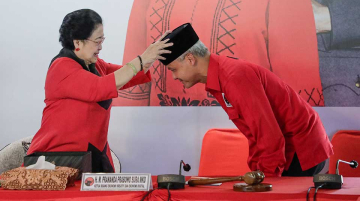
Indonesian Foreign Minister Sugiono’s recent remarks at the ASEAN–China Foreign Ministers’ Meeting in Kuala Lumpur mark a welcome and necessary development in regional diplomacy. Amid long-standing discussions dominated by trade and economic cooperation, his decision to highlight transnational crime and maritime security brings long-overdue attention to issues that are central to the ASEAN–China relationship.
While economic ties between ASEAN and China remain vital—reflected in their mutual status as each other’s largest trading partners—diplomatic engagements have often prioritized investment, infrastructure, and market integration over security concerns. This approach has come at the cost of avoiding difficult but essential topics. Sugiono’s remarks broke that pattern by placing law enforcement and regional stability on equal footing with economic progress.
Transnational Crime and the Risks of Avoidance
In his statement, the minister called for stronger cooperation to combat transnational crime, emphasizing the need for joint action and improved law enforcement coordination. These crimes, including human trafficking, drug smuggling, cyber scams, and illegal gambling, are widespread across Southeast Asia and often involve Chinese nationals operating in the region. Given China’s role as both a source and transit point for many of these activities, its cooperation is essential.
Sugiono’s call for action reflects a deeper understanding of what a “comprehensive strategic partnership” truly entails. Trade agreements and business visas cannot exist in isolation from regional security.
For Indonesia and its neighbors, economic development is intimately tied to the ability to ensure public safety, uphold the rule of law, and maintain social order. Ignoring the growth of transnational crime would eventually threaten the very prosperity these trade initiatives aim to secure.
Reasserting Maritime Security Through Law
Equally important was the minister’s emphasis on maritime security. By reiterating Indonesia’s commitment to concluding the long-delayed Code of Conduct in the South China Sea by 2026, Sugiono underlined the urgency of resolving one of the region’s most complex and volatile disputes. Maritime tensions, whether due to overlapping claims, illegal fishing, or military posturing, are not hypothetical threats; they are real challenges that jeopardize regional peace and the livelihoods of coastal communities.
Past ASEAN–China meetings have often referred to maritime stability in abstract terms. Sugiono’s statement brought needed clarity by tying maritime security to adherence to international law, particularly the United Nations Convention on the Law of the Sea (UNCLOS). Without a shared commitment to these rules, dialogue becomes fragile, and trust erodes.
Laying the Groundwork for a More Secure Regional Partnership
To be sure, the minister also acknowledged positive developments. The upcoming ASEAN–China Free Trade Area (ACFTA) 3.0 and China’s proposed ASEAN visa initiative were welcomed as constructive steps to deepen regional integration. Additionally, his support for cooperation in digital economy, clean energy transition, food security, and infrastructure development reflects ASEAN’s forward-looking economic agenda.
Yet the significance of his remarks lies in the balance they struck. A strong partnership with China must not rest solely on trade volume or diplomatic gestures. It must also confront the hard security challenges that, if left unaddressed, could destabilize the region. The inclusion of transnational crime and maritime stability in such high-level dialogue reflects a more mature, realistic, and ultimately sustainable form of engagement.
Sugiono’s leadership at the meeting signals a broader shift toward more comprehensive regional diplomacy—one that places equal value on prosperity and security, and that treats difficult conversations not as threats to cooperation, but as its foundation.
Moving forward, ASEAN’s dialogue with China would benefit from continuing this trajectory. Strategic partnerships thrive on openness, accountability, and mutual respect. By ensuring that critical issues such as maritime disputes and criminal networks are no longer omitted from the agenda, ASEAN can build a more stable and resilient relationship with its most significant partner.
Sugiono deserves recognition for setting this tone. It is a much-needed course correction and a vital step toward making ASEAN–China cooperation not only broader, but deeper and more honest.
This article was co-authored by Yeta Purnama, a researcher at the Center of Economic and Law Studies (CELIOS), and Muhammad Zulfikar Rakhmat, Director of the China-Indonesia Desk at CELIOS.






